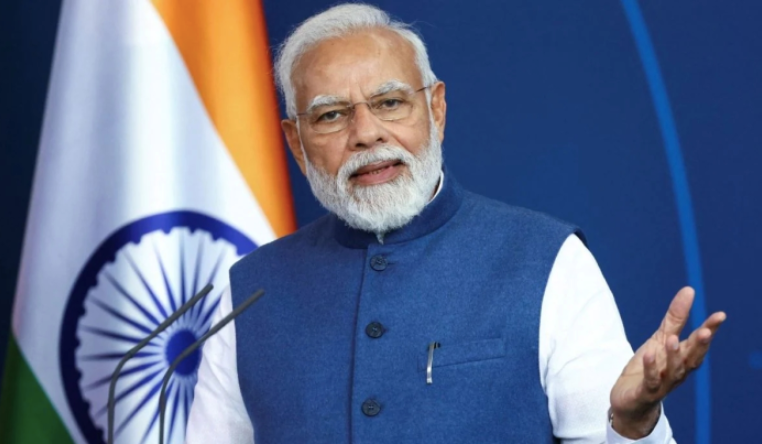|
Getting your Trinity Audio player ready...
|
New Delhi, India – In a surprising move aimed at promoting domestic manufacturing in the tech sector, the Indian government, led by Prime Minister Narendra Modi, has placed restrictions on the import of computers and laptops.
Importers will now need to apply for licenses to bring laptops, tablets, personal computers, and other electronic devices into the country, according to a notice issued by the Ministry of Commerce and Industry on Thursday. This marks a significant shift from the previously unrestricted import policy for such items.
The Ministry did not provide a specific reason for the change in rules. However, the move aligns with Prime Minister Modi’s “Make in India” campaign, which seeks to bolster local manufacturing and create more job opportunities.
The campaign has been aggressively pursued by Modi, who aims to strengthen India’s position as a manufacturing hub and reduce the nation’s reliance on foreign imports. A similar restriction on smart TV imports was implemented in 2020 as part of this effort.
India’s electronic imports reached $19.7 billion in the April to June period, marking a 6.25% increase from the same period in 2022, according to Reuters data. Top laptop sellers in India, including Apple (AAPL) and Samsung (SSNLF), have been contacted by CNN for comments on the recent development, but no responses have been received yet.
This push towards domestic manufacturing comes at a crucial time for India, as global companies are exploring alternatives to secure their supply chains, looking beyond China. The country’s working-age population is projected to reach one billion over the next decade, making it an attractive destination for companies seeking alternative manufacturing hubs to diversify their operations.
Earlier this year, India’s Commerce Minister, Piyush Goyal, disclosed that Apple was already manufacturing between 5% and 7% of its products within the country. He stated that Apple was targeting a significant increase to 25% of its manufacturing in India.
Taking advantage of India’s potential, US chipmaker Micron (MICR) recently announced plans to establish a new semiconductor assembly and test manufacturing facility in the western state of Gujarat. This facility is being hailed as India’s first of its kind, with Micron investing up to $825 million. The project is expected to create thousands of new direct Micron jobs and contribute to the creation of 15,000 community jobs in the coming years.
Foxconn, the world’s largest contract electronics manufacturer and a key supplier to Apple is also eyeing expansion in India. Despite its exit from a joint venture with Vedanta (VEDL) to build a chip factory, the company remains committed to investing in Indian chipmaking. Foxconn has applied for government programs that offer subsidies to set up semiconductor or electronic display production facilities in the country.
The move to restrict computer and laptop imports signals India’s determination to enhance its manufacturing capabilities and attract significant investments. While this could bolster India’s position as a prominent player in the global tech industry, it may also impact international tech companies and influence consumer prices. The Indian government’s pursuit of self-reliance in technology manufacturing is a pivotal step towards realizing its economic ambitions and fostering technological innovation within the nation.
